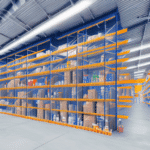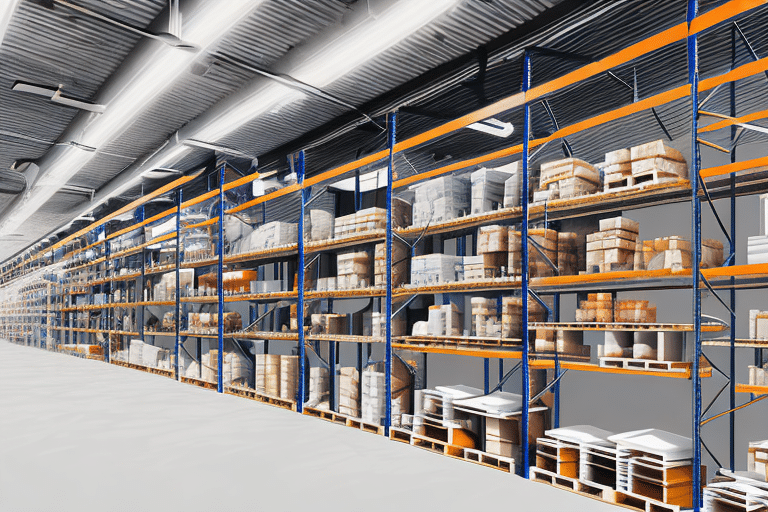Top ERP Systems for Industrial Paints and Coatings E-Commerce Businesses
In the competitive world of industrial paints and coatings e-commerce, optimizing operations is crucial for success. Implementing an Enterprise Resource Planning (ERP) system can revolutionize your business by streamlining processes, enhancing communication, and boosting productivity. This guide explores the top ERP systems tailored for the industrial paints and coatings sector, providing in-depth analysis and insights to help you make an informed decision.
Importance of ERP Systems in Industrial Paints and Coatings E-Commerce
ERP systems integrate various business functions into a unified platform, facilitating efficient management of operations. For industrial paints and coatings businesses, ERP solutions address unique challenges such as specialized inventory management, compliance with safety and environmental regulations, and high-volume order processing.
According to a Gartner report, the global ERP software market is expected to grow by 7% in 2023, highlighting the increasing reliance on these systems across industries.
Implementing an ERP system ensures real-time visibility into operations, improves decision-making through data analytics, and enhances customer satisfaction by ensuring timely and accurate order fulfillment.
Key Factors to Consider When Choosing an ERP System
1. Business Size and Complexity
Evaluate the scalability of the ERP system to ensure it can handle your business's current size and future growth. Larger enterprises with complex operations may require more comprehensive solutions compared to smaller businesses.
2. Customization and Flexibility
Your business may have specific needs that standard ERP systems cannot address. Look for systems that offer high levels of customization to tailor functionalities to your unique processes.
3. Integration Capabilities
Ensure the ERP system can seamlessly integrate with your existing software, such as CRM platforms, inventory management tools, and e-commerce platforms.
4. Cost and ROI
Consider both the initial investment and the long-term benefits. An ERP system should provide a clear return on investment by improving efficiency and reducing operational costs.
5. Vendor Support and Training
Choose a vendor that offers robust support and comprehensive training to ensure smooth implementation and high user adoption rates.
Comparison of Leading ERP Systems
Here is a comparison of some of the top ERP systems suitable for industrial paints and coatings e-commerce businesses:
- SAP ERP: Known for its comprehensive features and scalability, SAP ERP is ideal for large enterprises.
- Oracle NetSuite: Offers cloud-based solutions with strong financial management capabilities.
- Microsoft Dynamics 365: Integrates seamlessly with other Microsoft products, providing flexibility and ease of use.
- Infor CloudSuite Industrial: Tailored for manufacturing industries, offering robust inventory and order management.
- Epicor ERP: Provides extensive customization options and strong support for supply chain management.
Each of these ERP systems has unique strengths. For a detailed comparison of features, costs, and compatibility, refer to this comprehensive review.
Benefits of Implementing an ERP System
1. Enhanced Efficiency
ERP systems automate routine tasks, reducing manual effort and minimizing errors. This leads to faster order processing and improved inventory management.
2. Improved Data Visibility
Gain real-time insights into various aspects of your business, enabling better decision-making and strategic planning.
3. Regulatory Compliance
ERP systems help manage compliance with industry standards and environmental regulations by providing accurate tracking and reporting tools.
4. Better Customer Satisfaction
With streamlined operations and improved accuracy, businesses can deliver products to customers more reliably and efficiently.
According to a NetSuite study, companies implementing ERP systems report a 20-25% increase in overall productivity.
Successful ERP Implementation: Evaluation and Transition
1. Defining Clear Objectives
Set specific goals for what you aim to achieve with the ERP system, such as reducing order processing time or improving inventory accuracy.
2. Comprehensive Training
Ensure that employees receive adequate training to effectively use the new system. High user adoption is critical for successful implementation.
3. Data Migration
Accurately transferring data from existing systems to the new ERP is essential. Implement thorough data validation processes to ensure data integrity.
4. Continuous Evaluation
Establish metrics to monitor the performance of the ERP system post-implementation. Regularly assess whether the system meets your defined objectives.
For insights on evaluating ERP success, refer to this Business.com article.
Avoiding Common ERP Implementation Mistakes
1. Inadequate Planning
Failing to develop a detailed implementation plan can lead to delays and overspending. Invest time in thorough planning and project management.
2. Poor Stakeholder Engagement
Ensure that all relevant stakeholders are involved in the decision-making process to secure buy-in and address diverse needs.
3. Underestimating Resource Requirements
ERP implementations require significant time, budget, and human resources. Accurately estimate and allocate resources to avoid project overruns.
4. Lack of Customization
Using an ERP system that doesn't align with your business processes can hinder performance. Prioritize systems that offer the necessary customization.
Learn more about common pitfalls in ERP implementations from this CIO.com article.
Future Trends in ERP Systems
1. Cloud-Based ERP Solutions
The shift towards cloud-based ERP systems continues, offering greater flexibility, scalability, and remote accessibility. Cloud solutions also typically involve lower upfront costs and faster deployment times.
2. Integration with AI and Machine Learning
Artificial intelligence and machine learning are being integrated into ERP systems to provide advanced analytics, predictive maintenance, and automated decision-making.
3. Enhanced Mobile Capabilities
Mobile-friendly ERP interfaces enable employees to access critical data and perform tasks on-the-go, increasing productivity and responsiveness.
4. Blockchain Integration
Blockchain technology enhances the security and transparency of transactions within ERP systems, particularly beneficial for supply chain management and compliance tracking.
Stay updated with the latest ERP trends by following reports from Forrester and other industry leaders.
Case Studies: Successful ERP Implementations
1. ABC Coatings Enhances Supply Chain Efficiency with SAP ERP
ABC Coatings implemented SAP ERP to streamline their supply chain operations. The system provided real-time inventory tracking and automated order processing, resulting in a 30% reduction in order fulfillment time.
Read the full case study on the SAP website.
2. XYZ Paints Boosts Productivity with Oracle NetSuite
XYZ Paints adopted Oracle NetSuite to integrate their financial, sales, and inventory management. The comprehensive solution led to a 25% increase in operational efficiency and improved financial reporting accuracy.
Learn more about XYZ Paints' success story on the Oracle customer stories page.
3. DEF Manufacturing Streamlines Operations with Microsoft Dynamics 365
DEF Manufacturing utilized Microsoft Dynamics 365 to improve inter-departmental communication and automate key processes. The implementation resulted in enhanced collaboration and a 20% reduction in operational costs.
Find detailed insights in the Microsoft Dynamics customer stories.
Conclusion
Choosing and implementing the right ERP system is a pivotal decision for industrial paints and coatings e-commerce businesses. A well-selected ERP solution can lead to significant improvements in efficiency, data management, and customer satisfaction. By considering key factors, avoiding common mistakes, and staying informed about future trends, your business can leverage ERP systems to achieve sustained growth and competitiveness.








